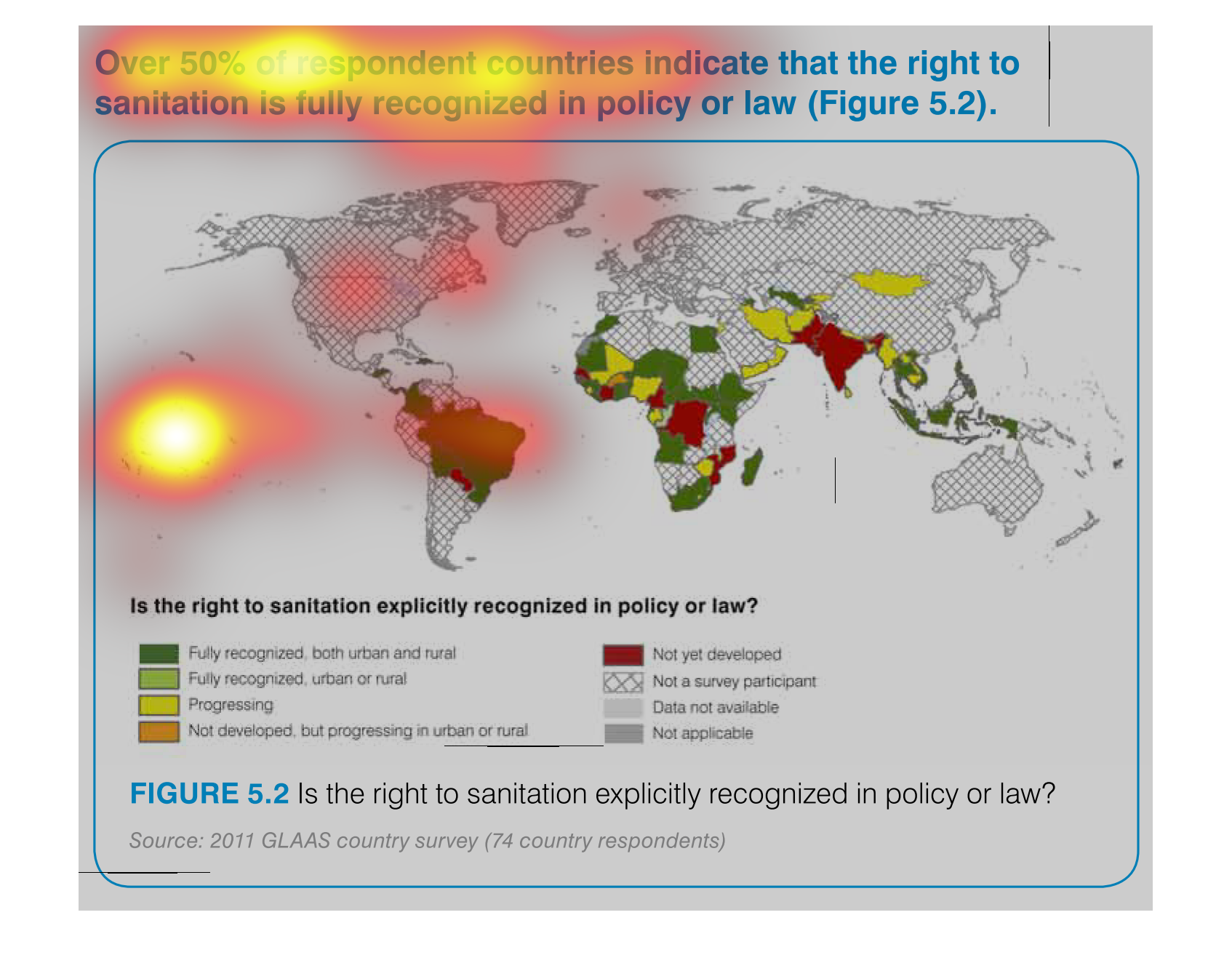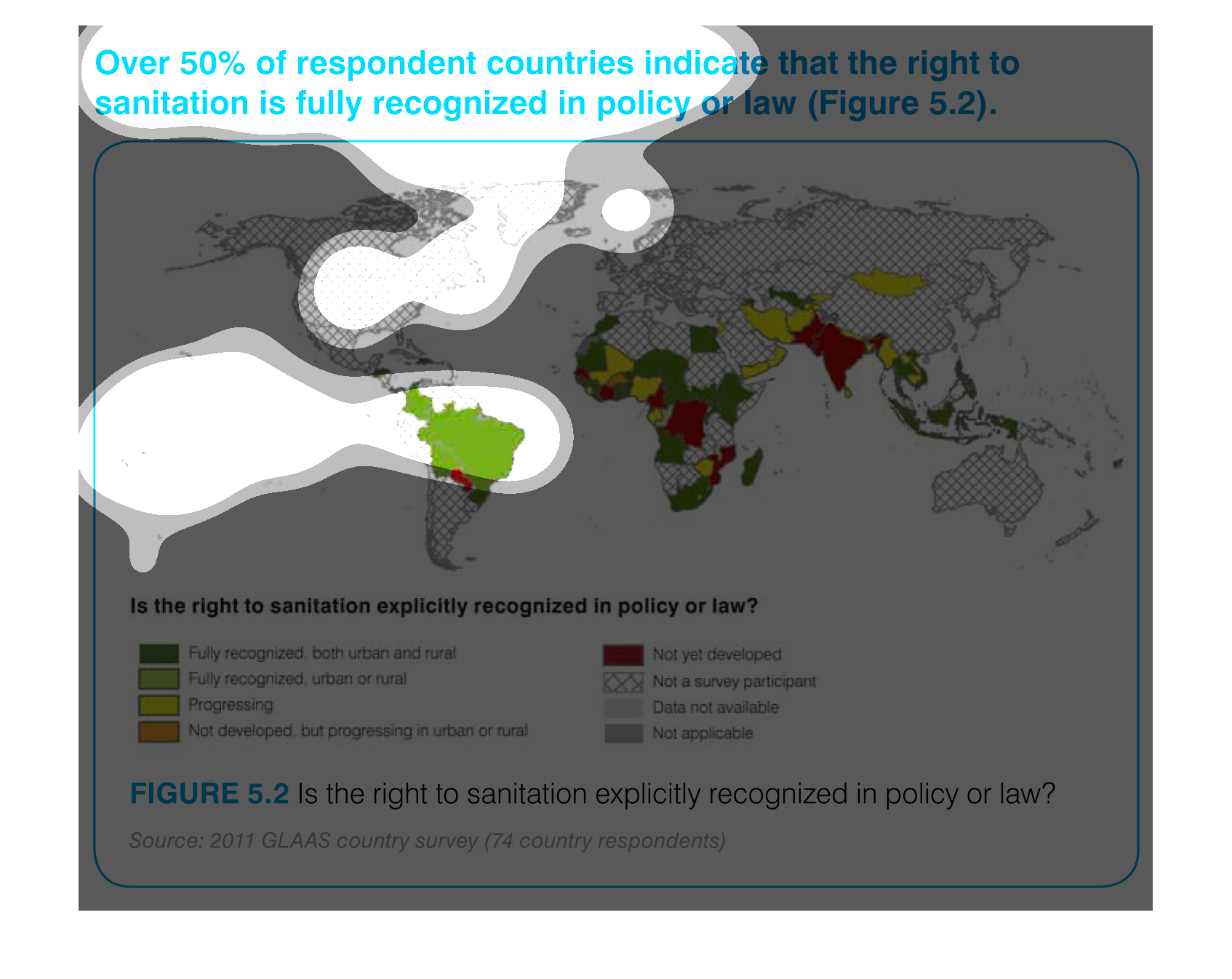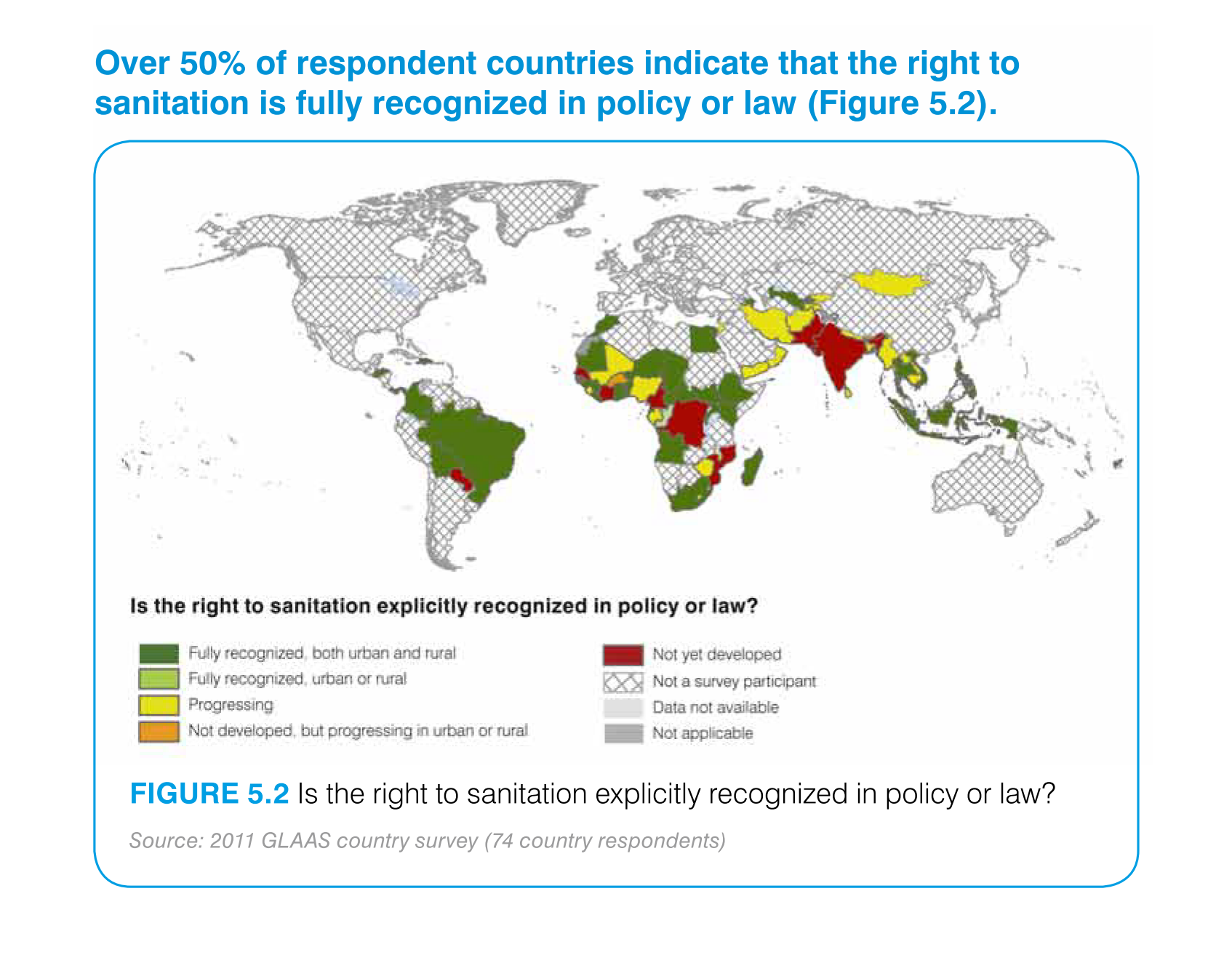
This world heat map shows that over 50% of respondent countries have sanitiation in fully
recognized polices or laws. It has various categoires whether the right to santiation is
explicitly designated in policy or law.
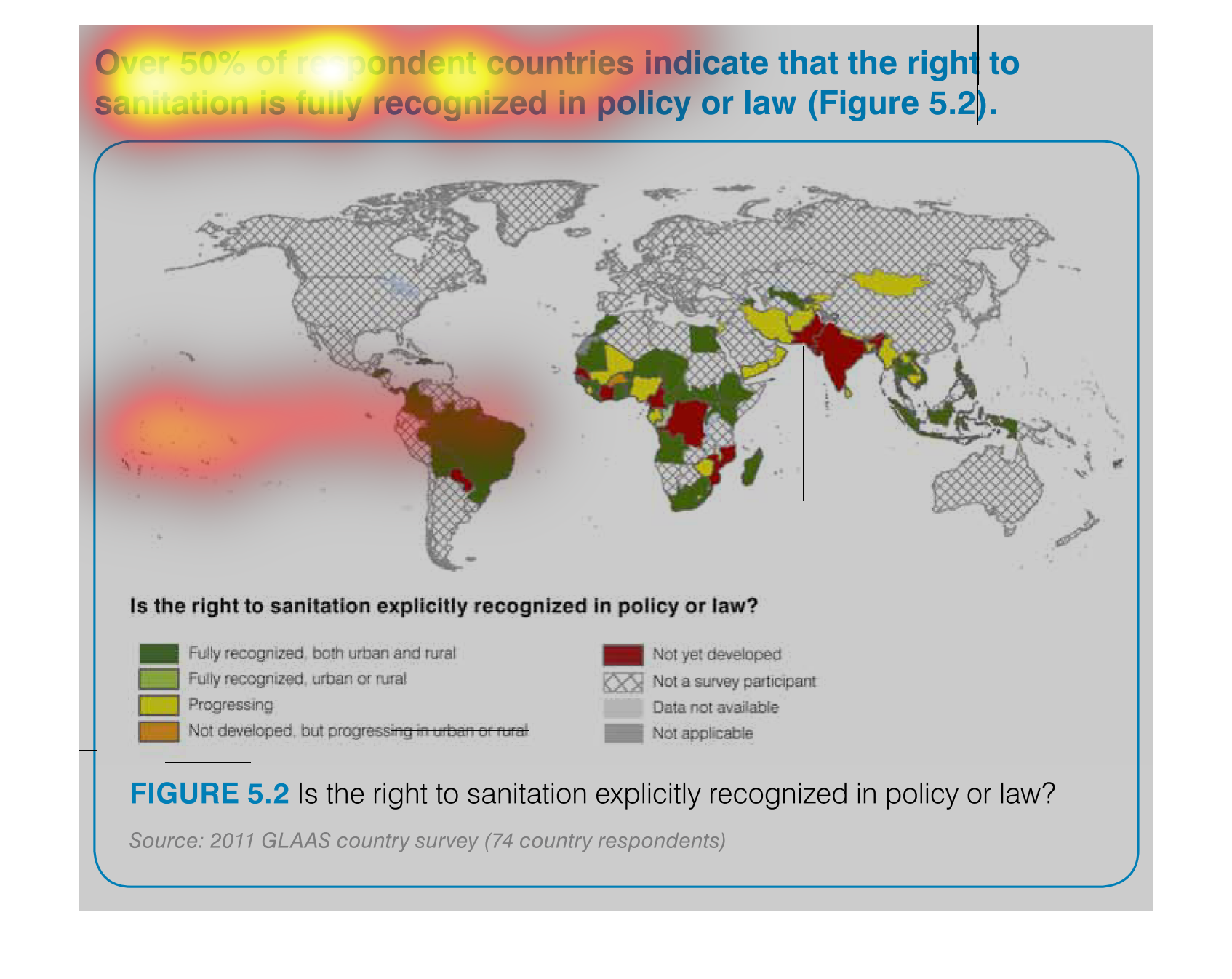
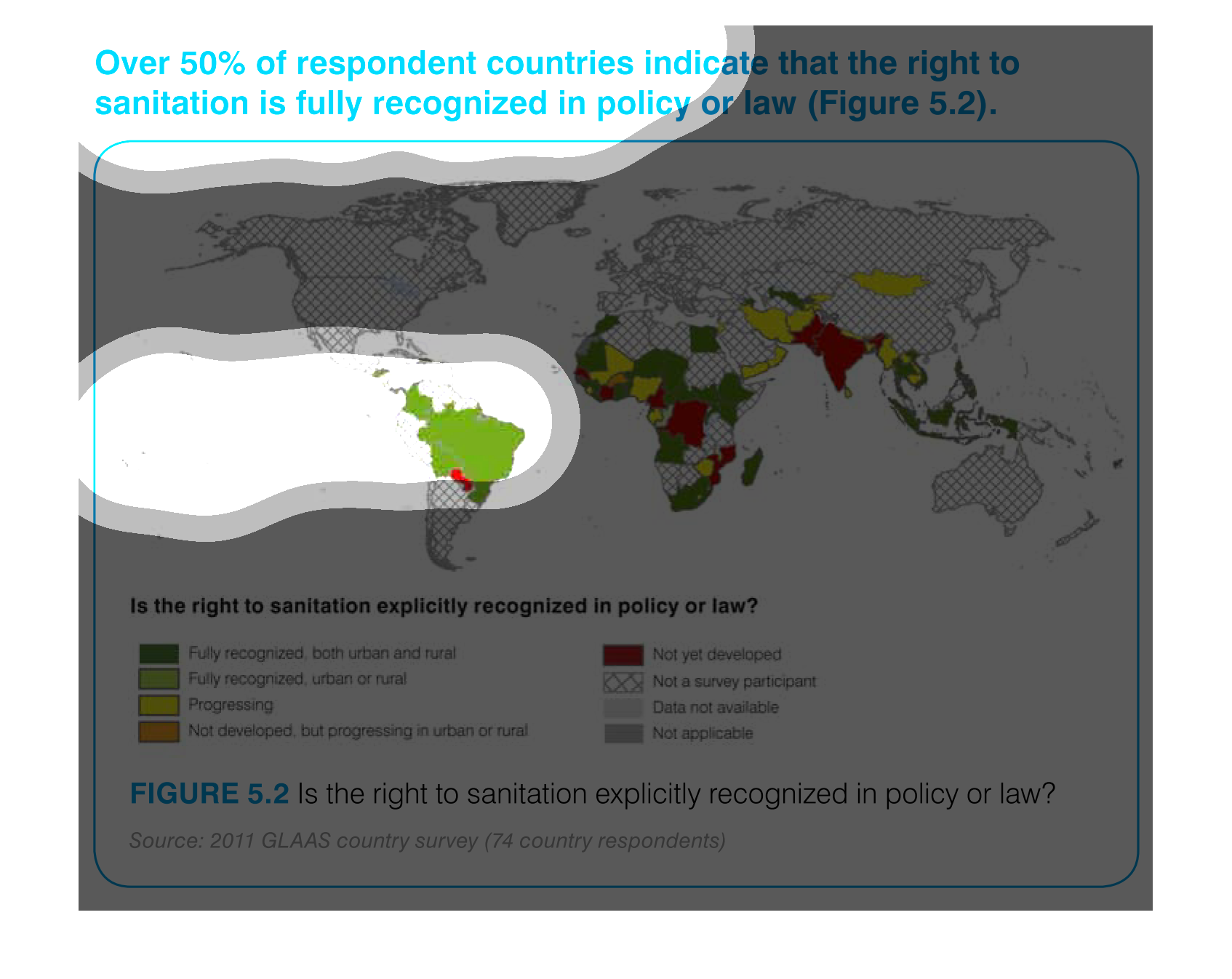
This is a global map of the countries where the right to sanitation is recognized by policy
or law. North America and Europe all have the right to sanitation, while most countries in
Africa do not.
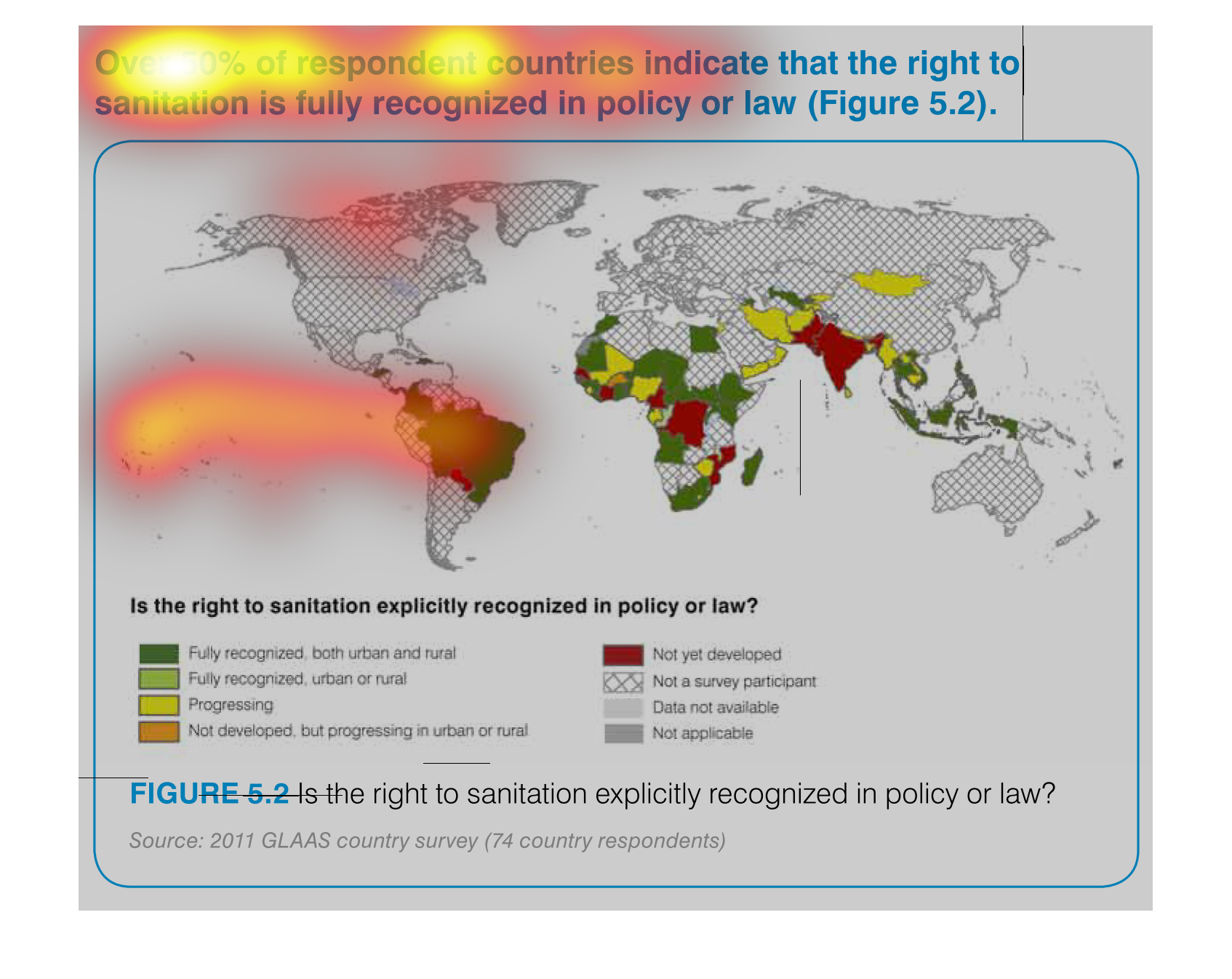
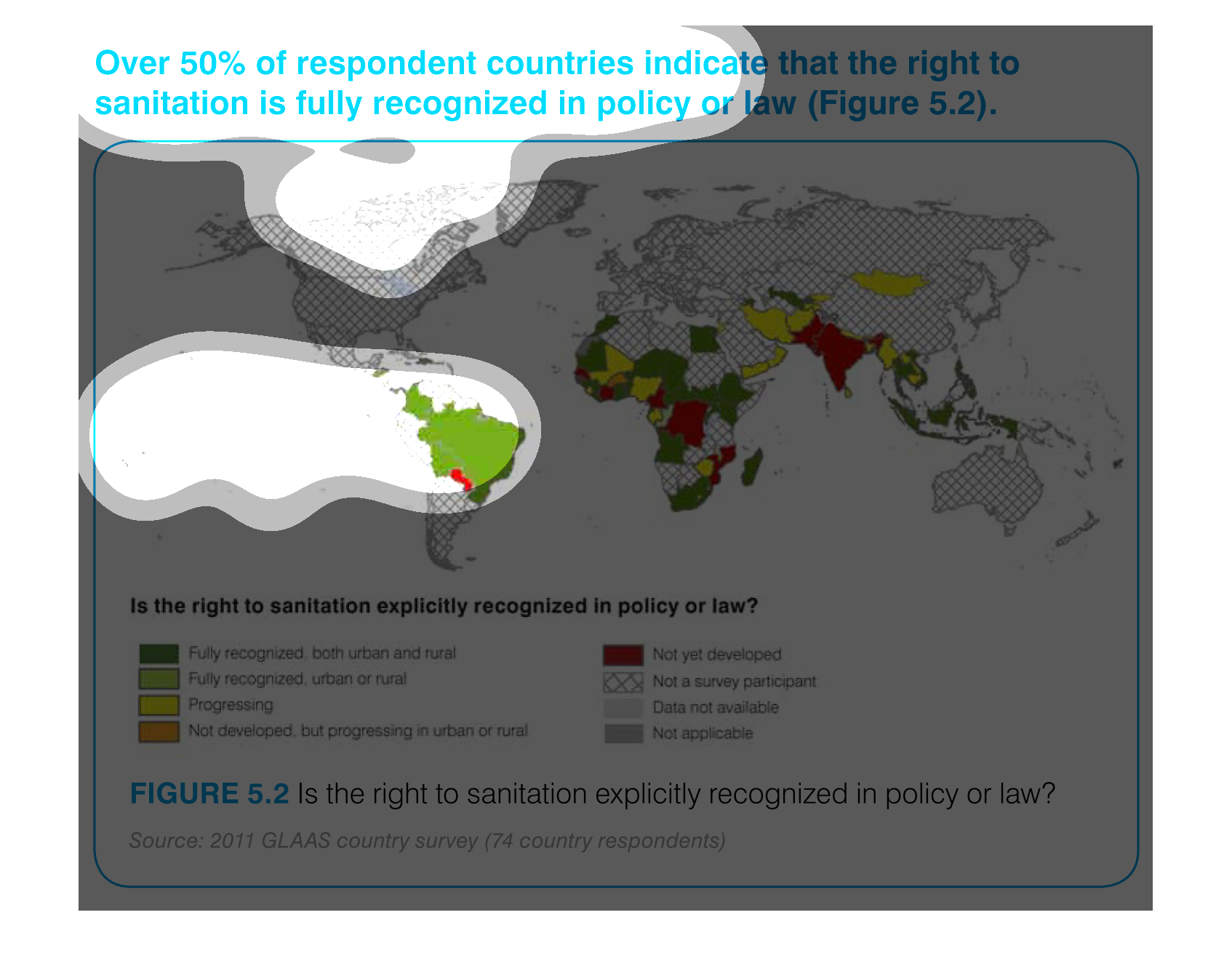
This map shows whether different countries view sanitation as a right recognized in policy
or law. The color gradient indicates level of recognition and how pervasive the recognition
is throughout the country.
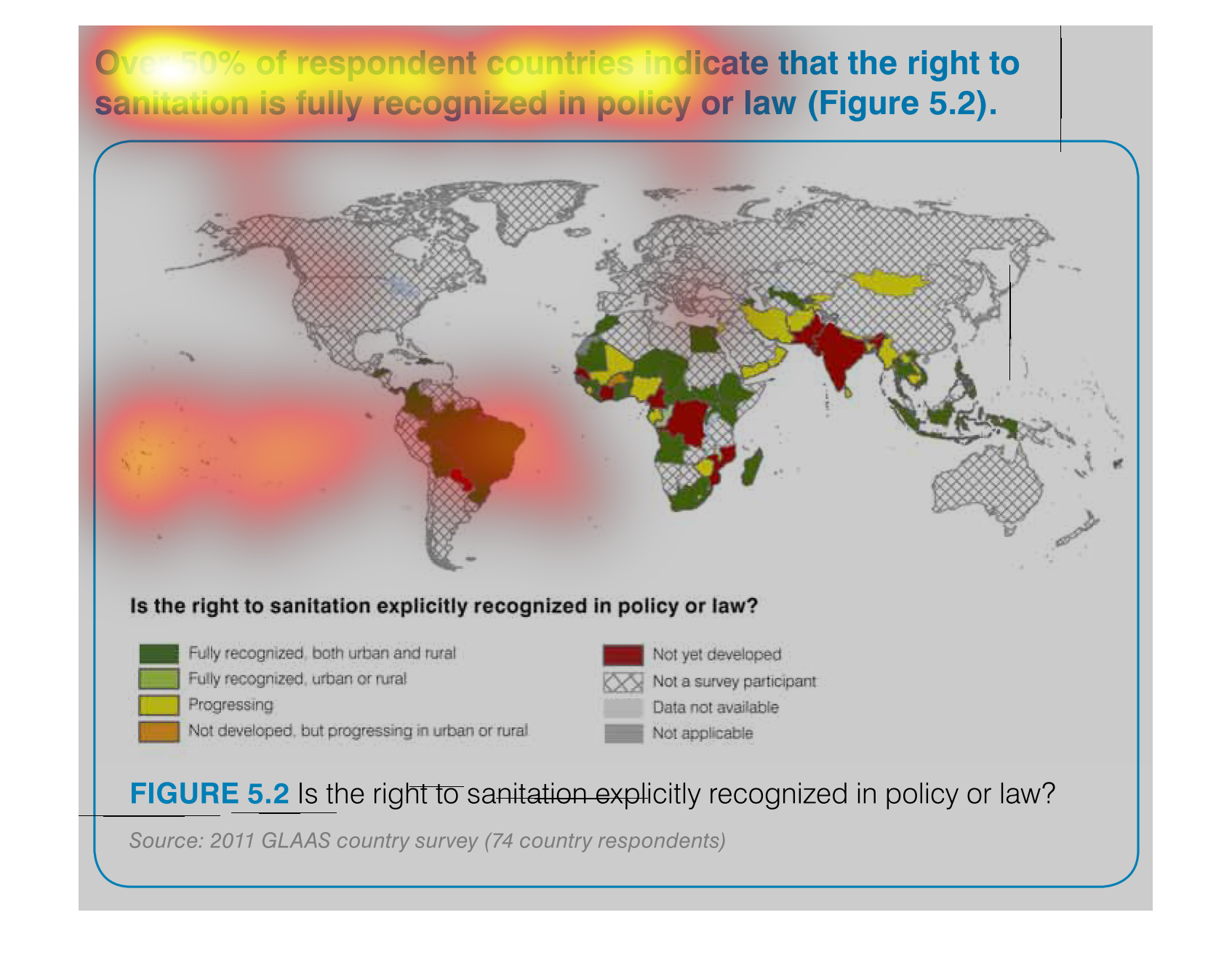
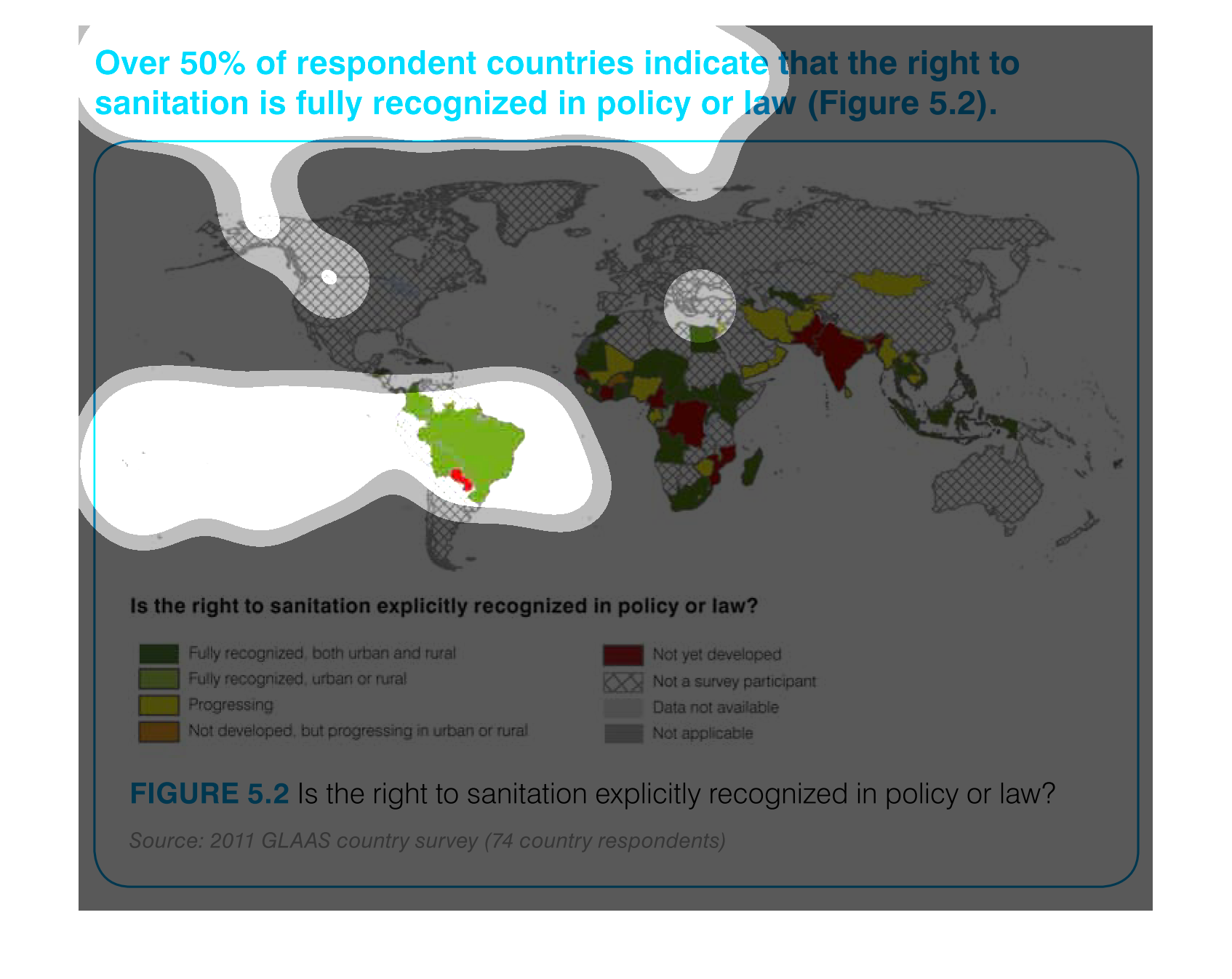
The map describes regional sanitation development level of participation. while much of South
America has participated in the policy for sanitation, there is still a very small section
where they have not developed such sanitation. The countries of Africa show much progress,
but there are still undeveloped areas. The Middle East, India, and areas of China show a great
need for sanitation policy, as the majority is undeveloped or progressing. North America,
Europe, Australia and parts of Russia/China were not included in this study.
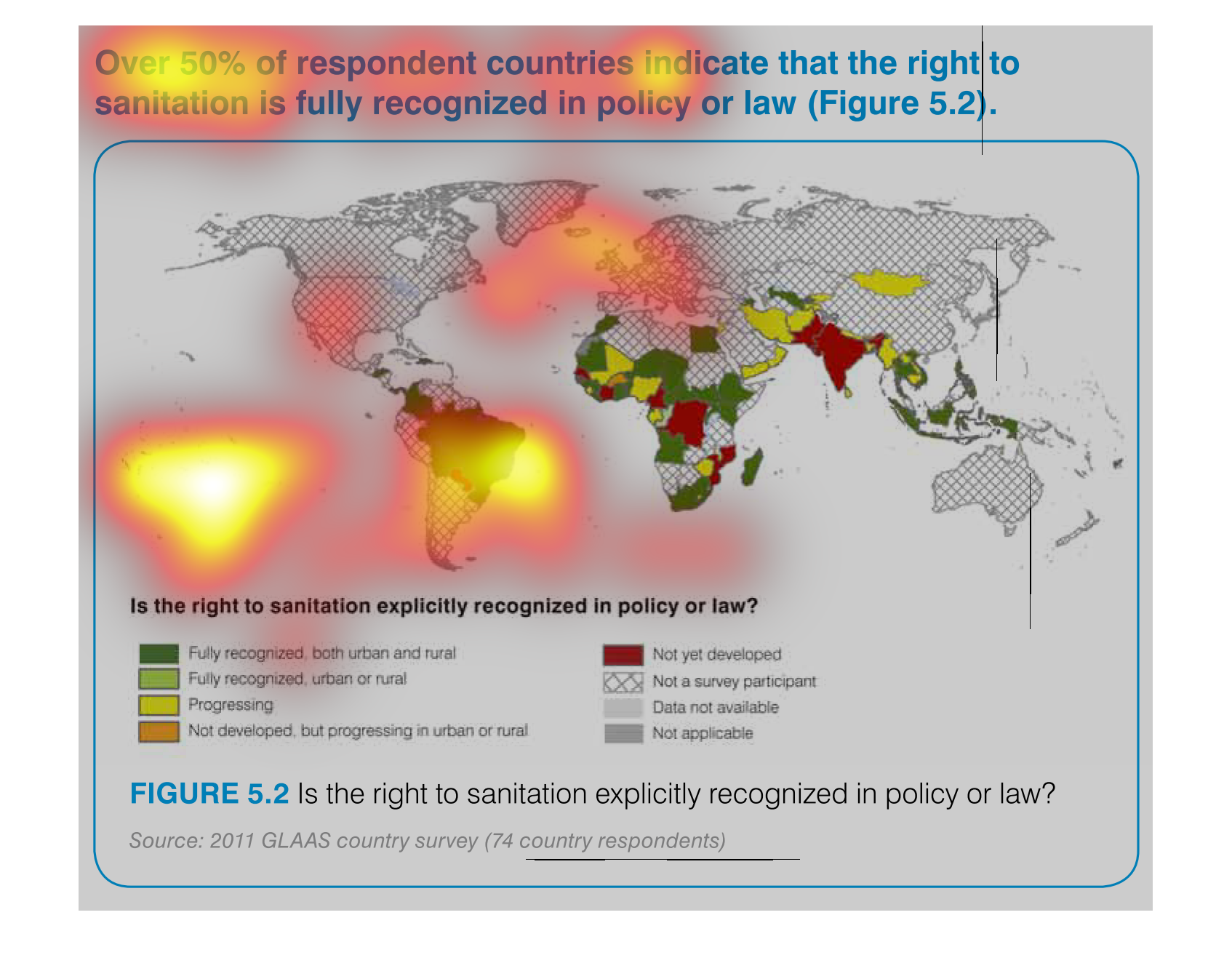
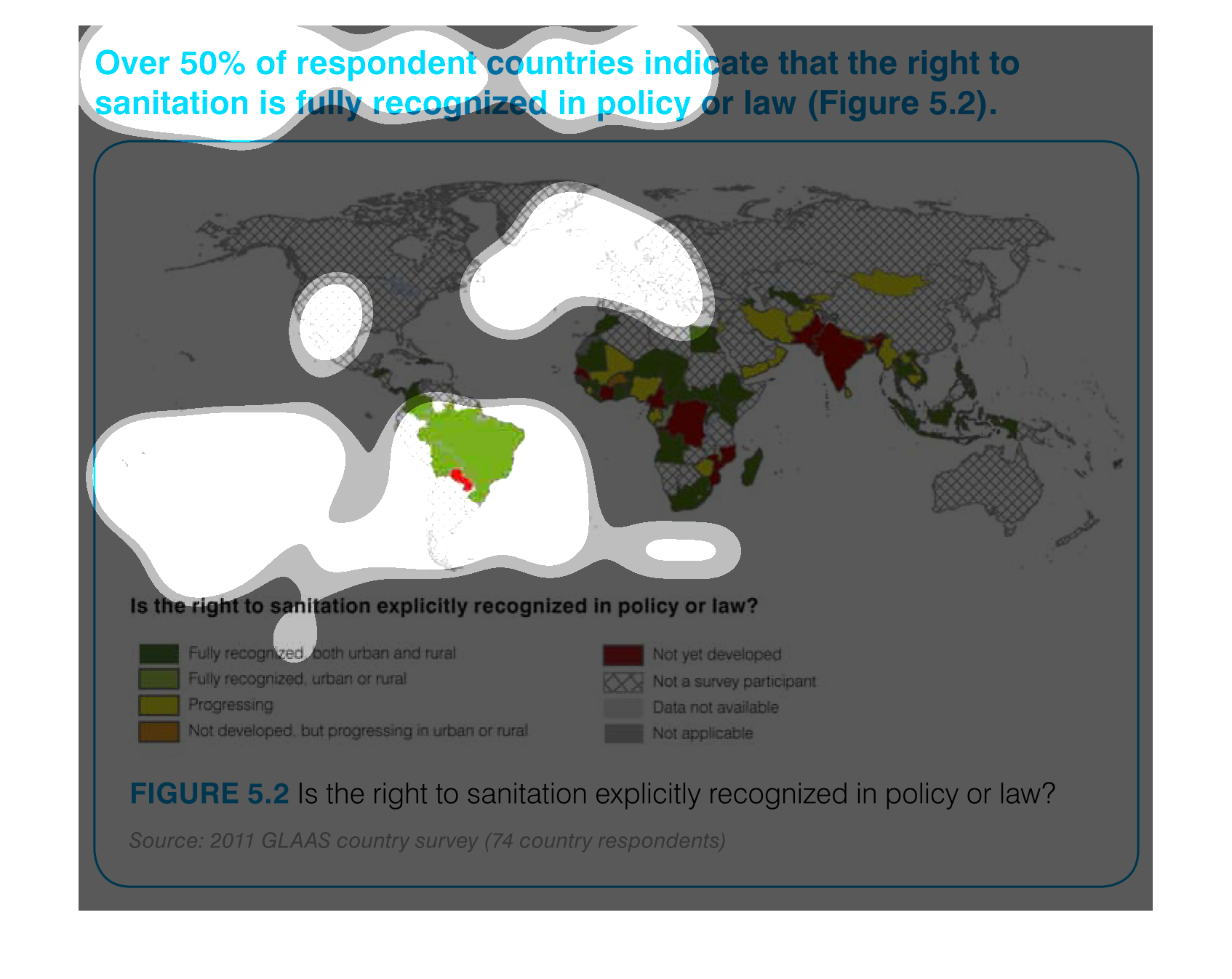
Shows which countries have recognized sanitation as a right that the law upholds. Countries
such as India have no laws developed in this field, while in Brazil it is fully recognized
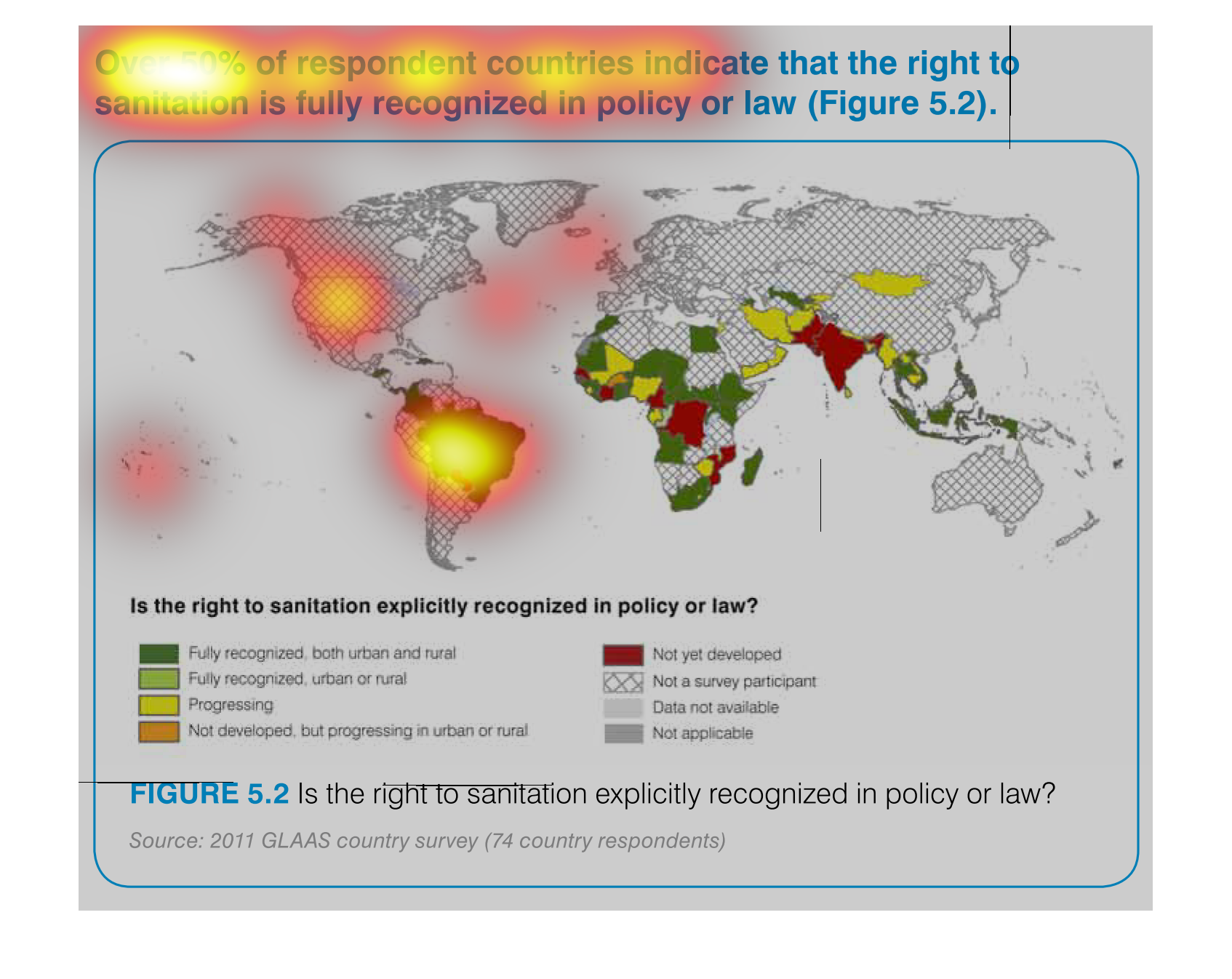
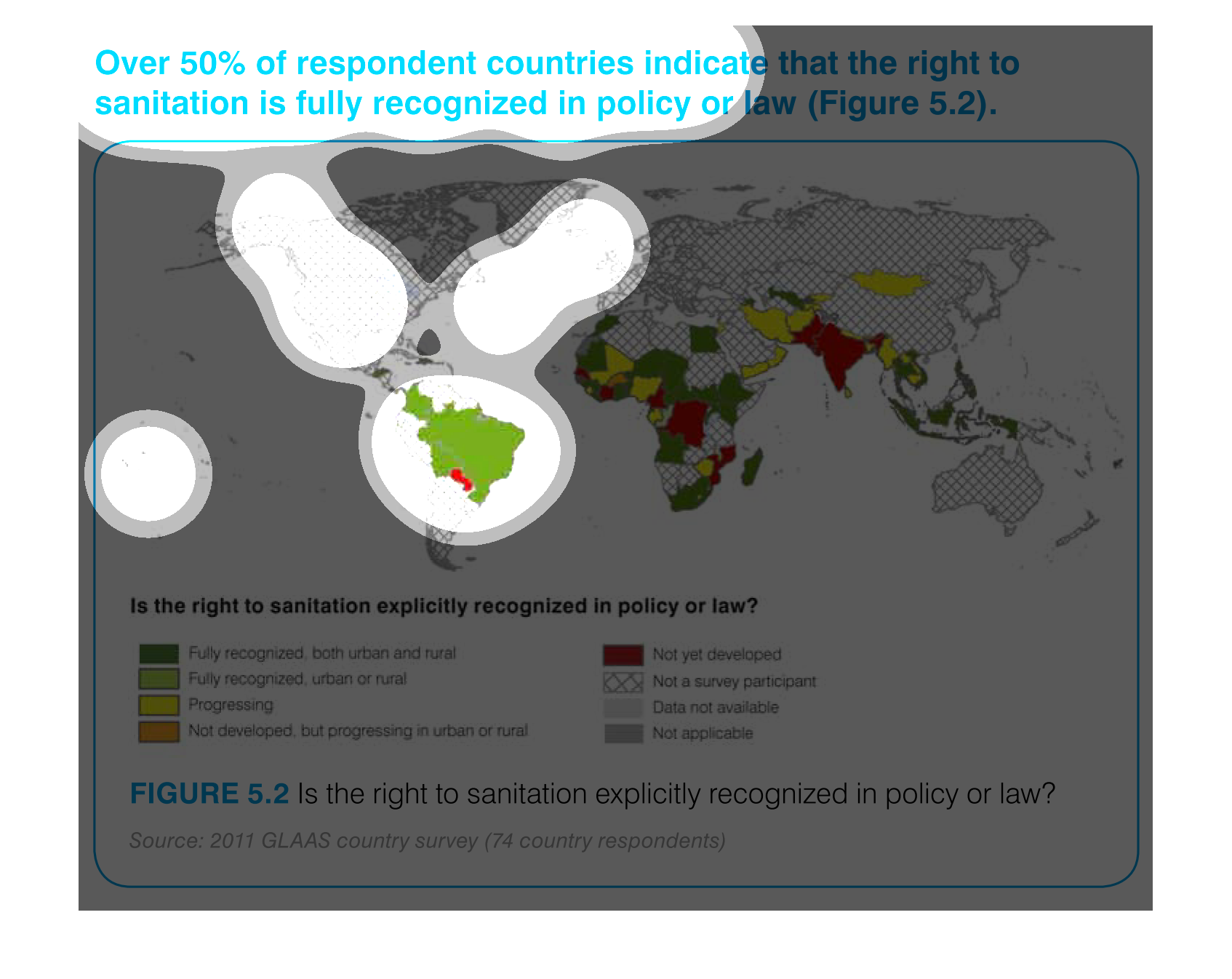
This handmade chart shows which countries have the right to clean sanitation as a part of
policy or law. It is mostly in Africa and south america and SE asia
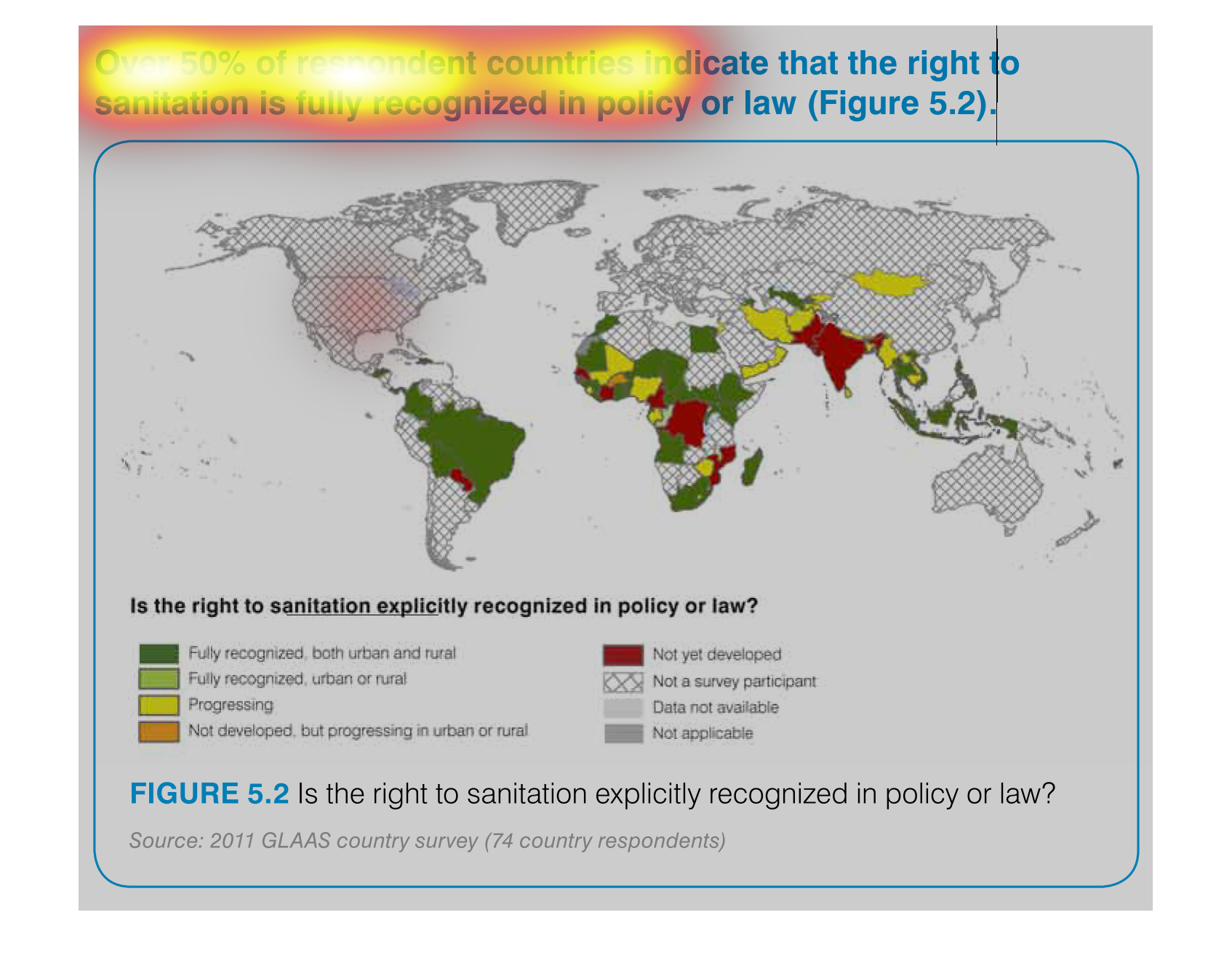
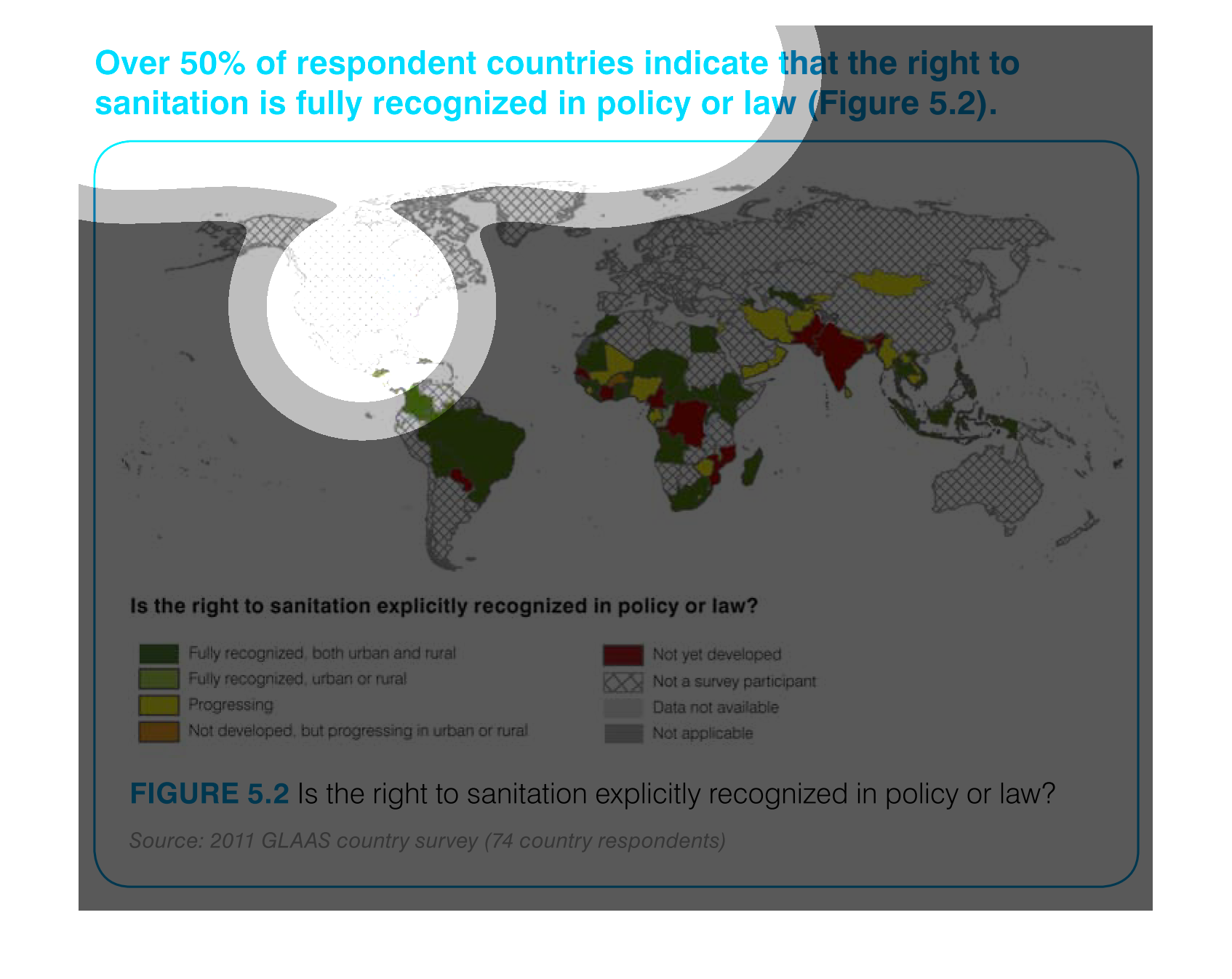
this picture show countries in the world that have a specific right to sanitation. The colors
on the map tell if the country that recognizes this right is fully developed or progressing
in countries that responded and were in the survey and if they are rural or urban areas.
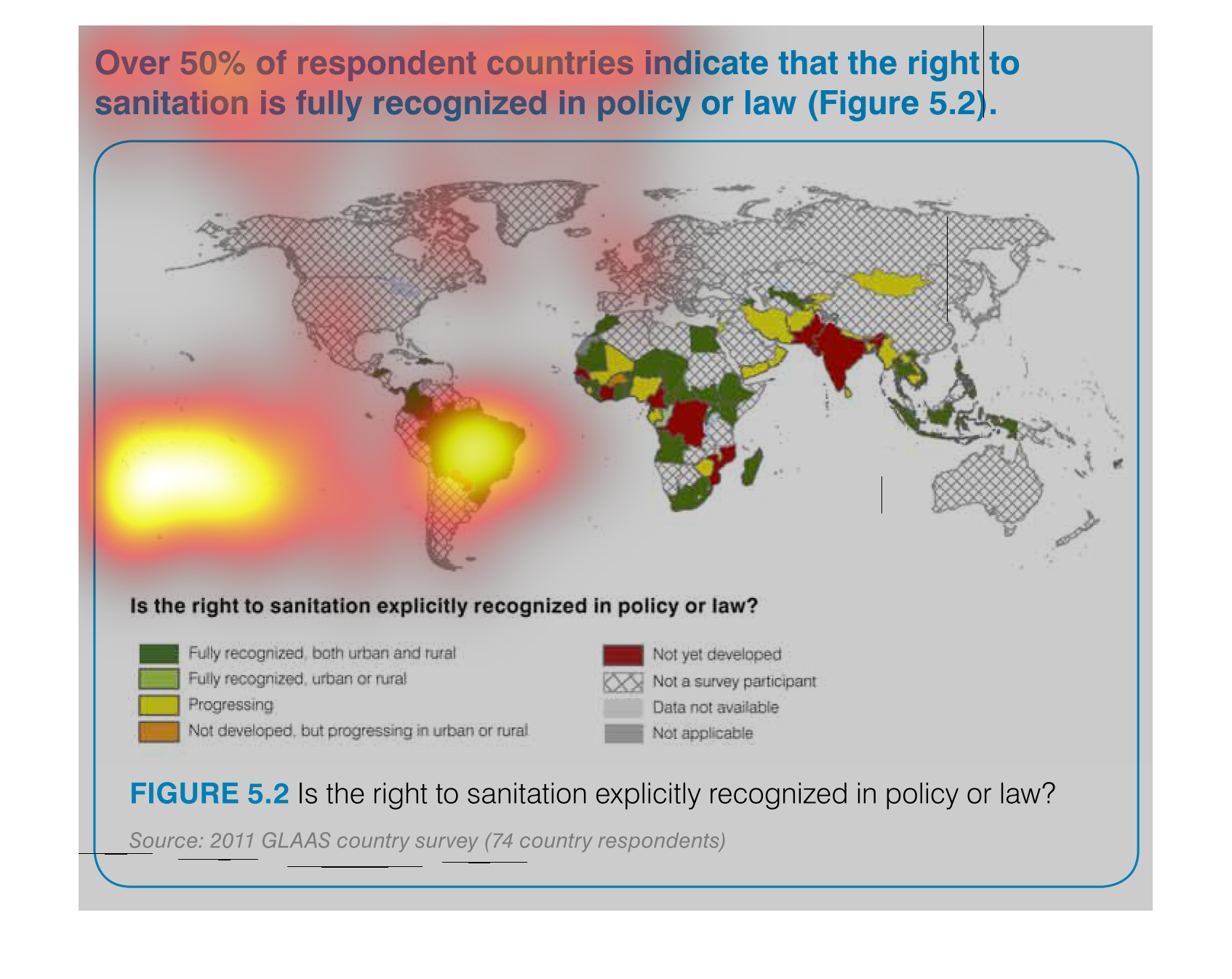
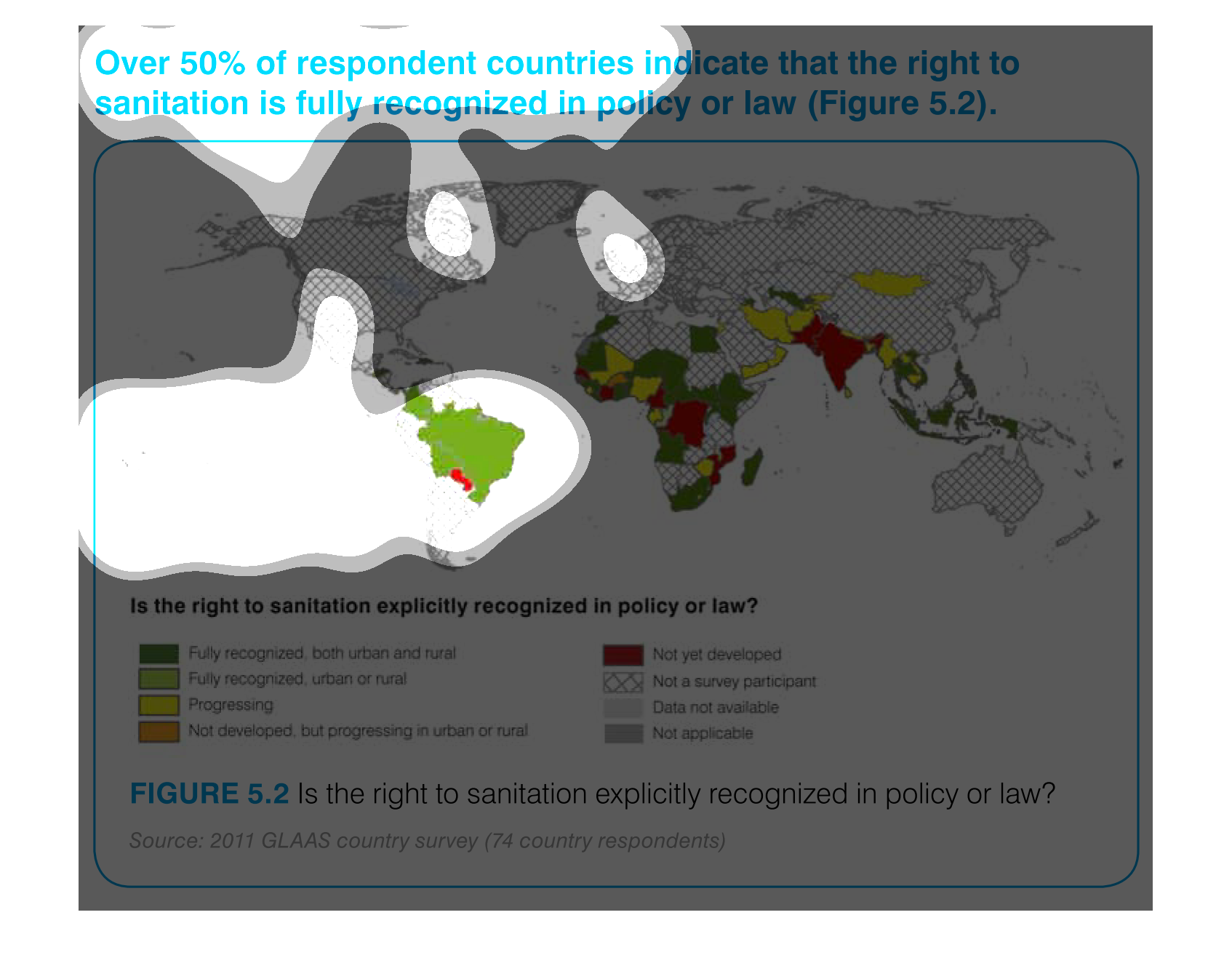
This map shows the right to sanitation that are in the policy or law of various countries
of the world. Over 50% of the countries responded that sanitation is fully recognized in policy
or law.
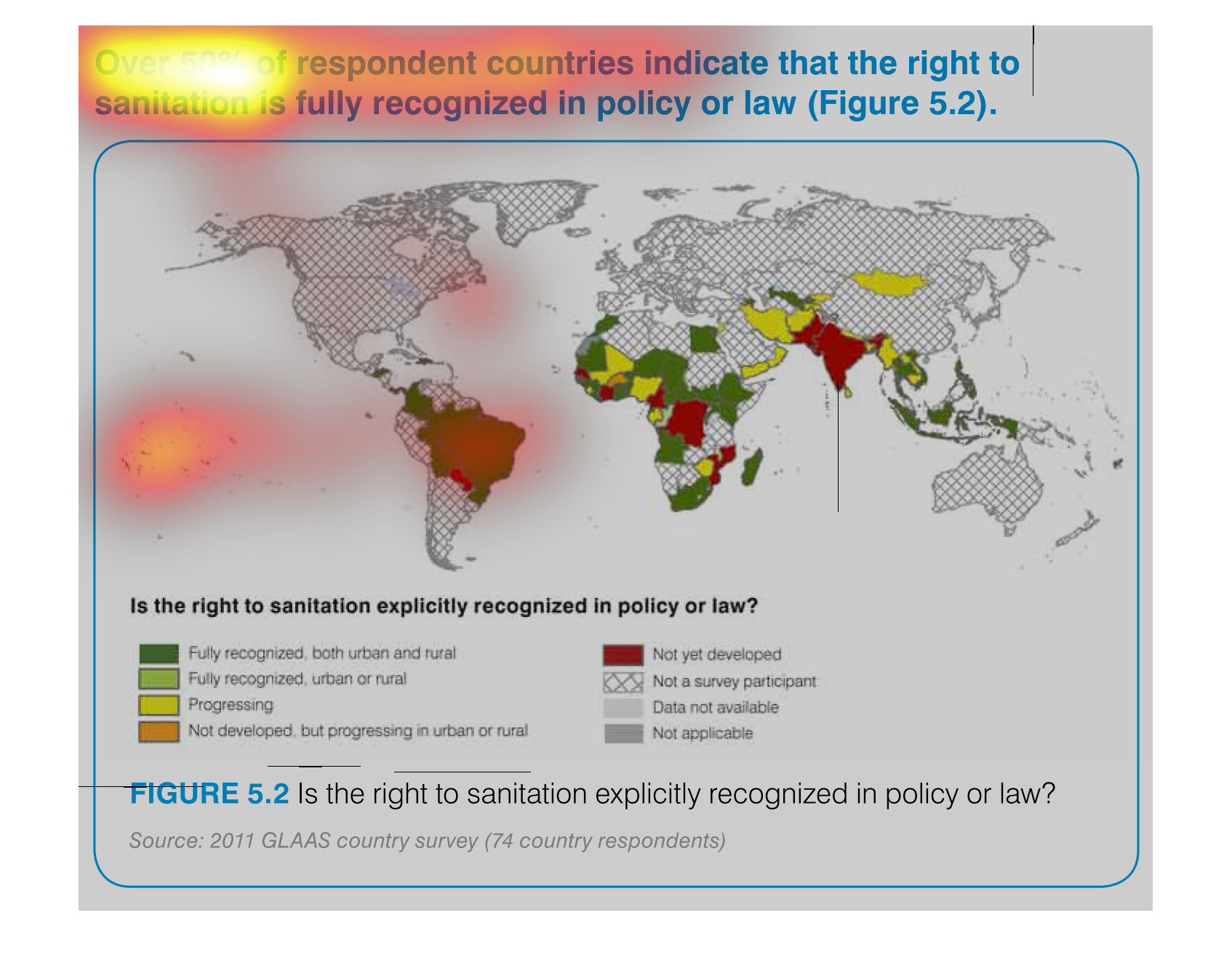
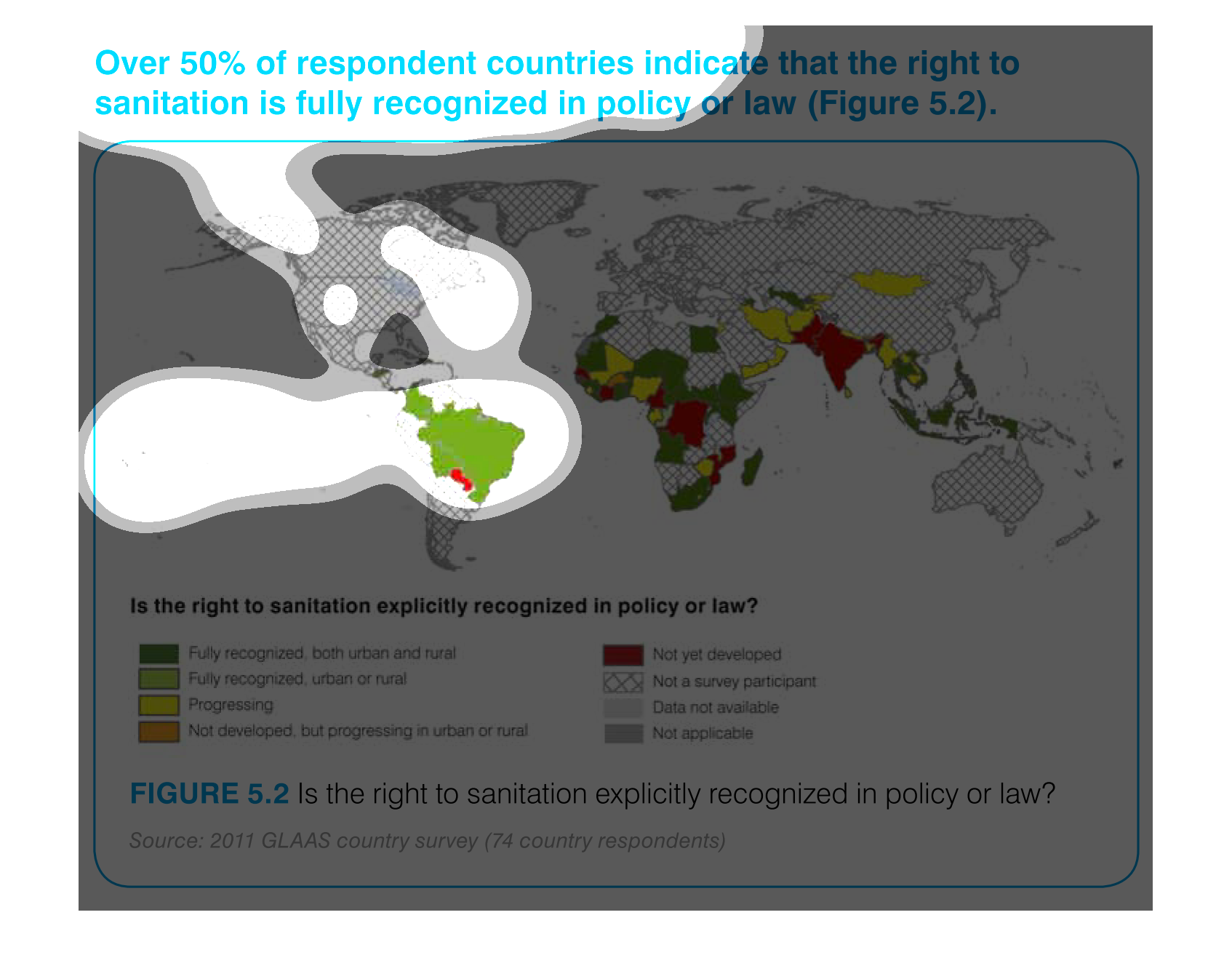
The graph shows participants of a study asked about the right to recognize sanitation. It
appears that many progressive countries in the world are not included in the study and that
recognize it in urban and rural areas.
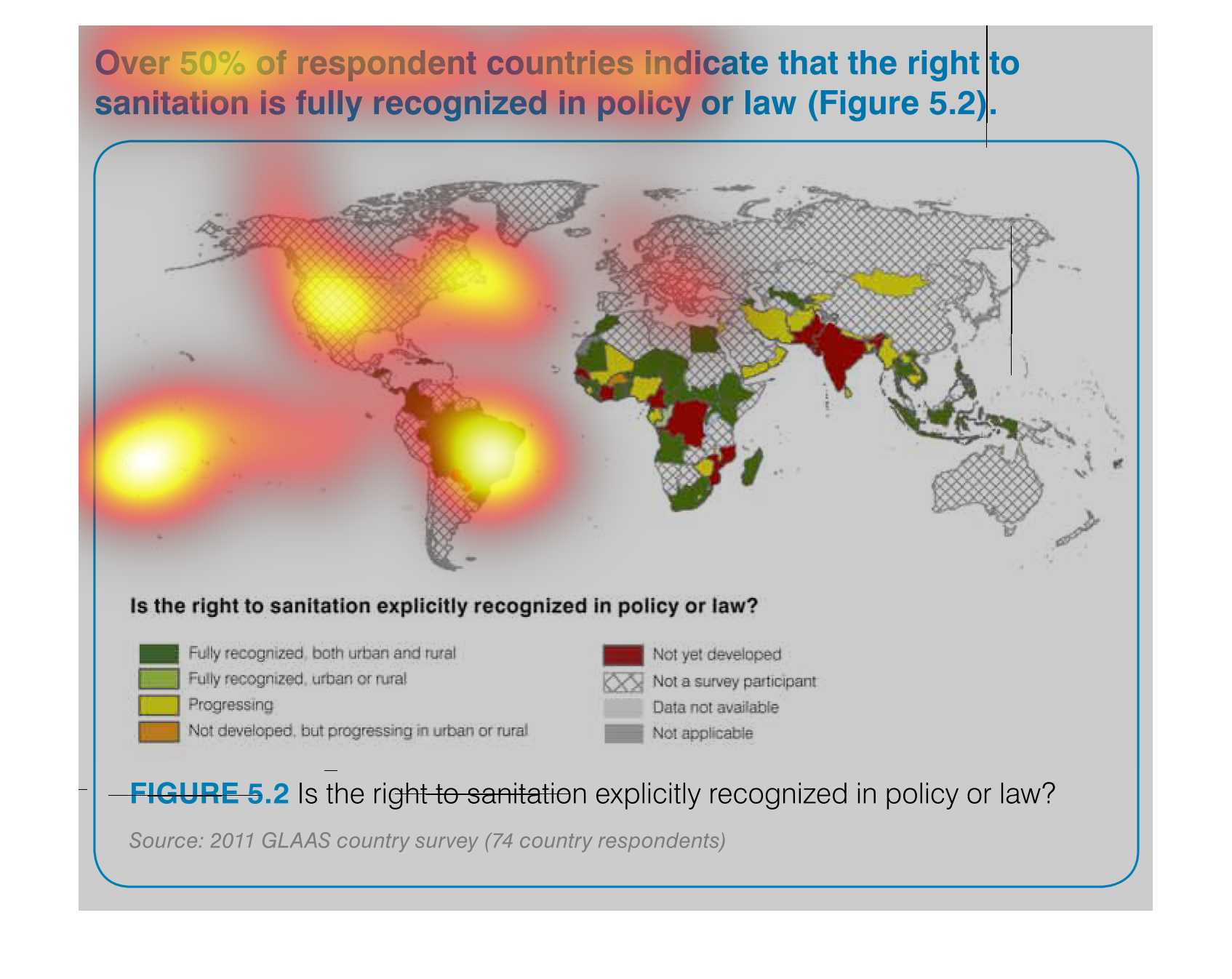
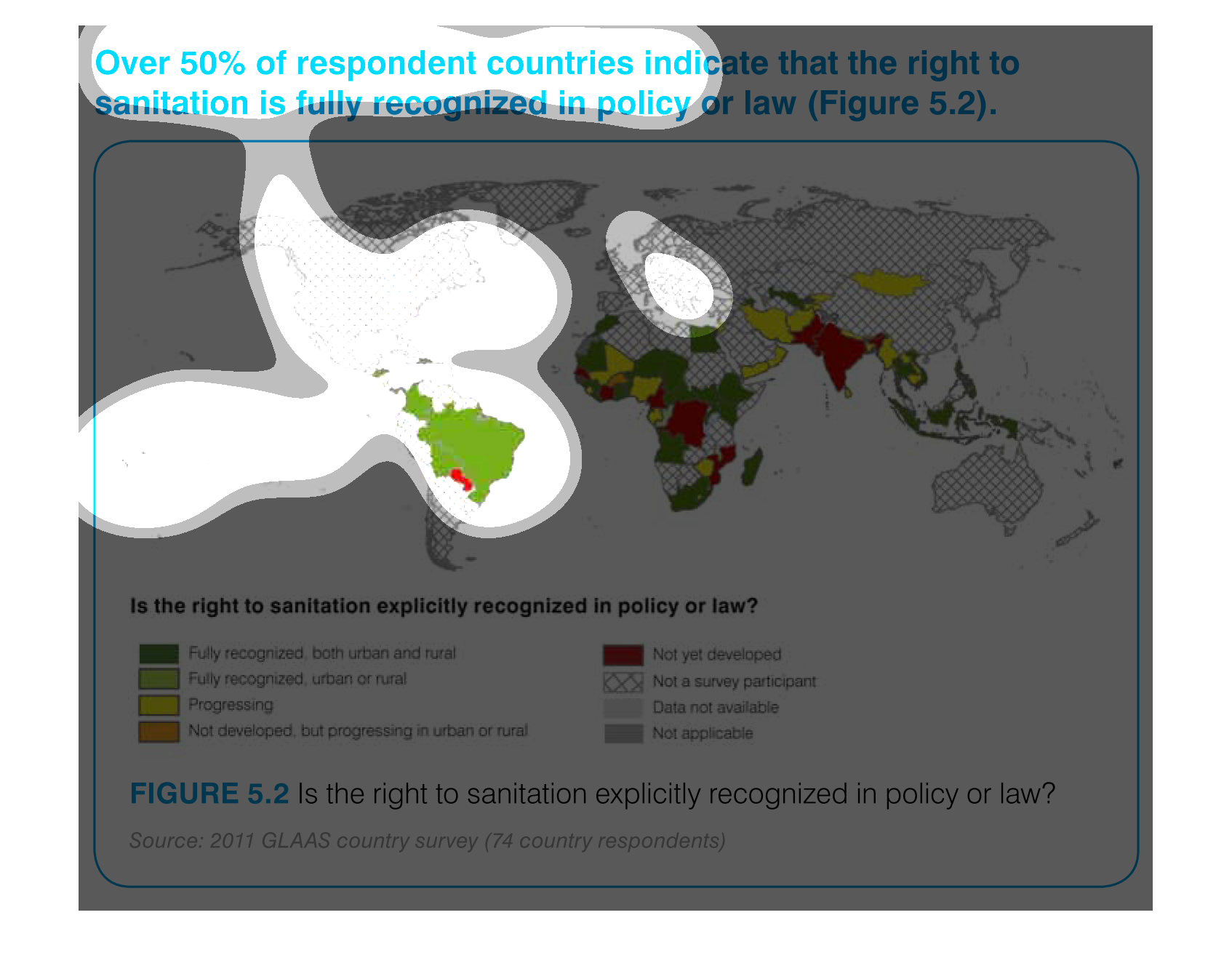
The map displays the world and highlights which countries have written into their laws the
right of access to sanitation. It is colored coded to show how the laws were written in. Most
of the map was not surveyed.
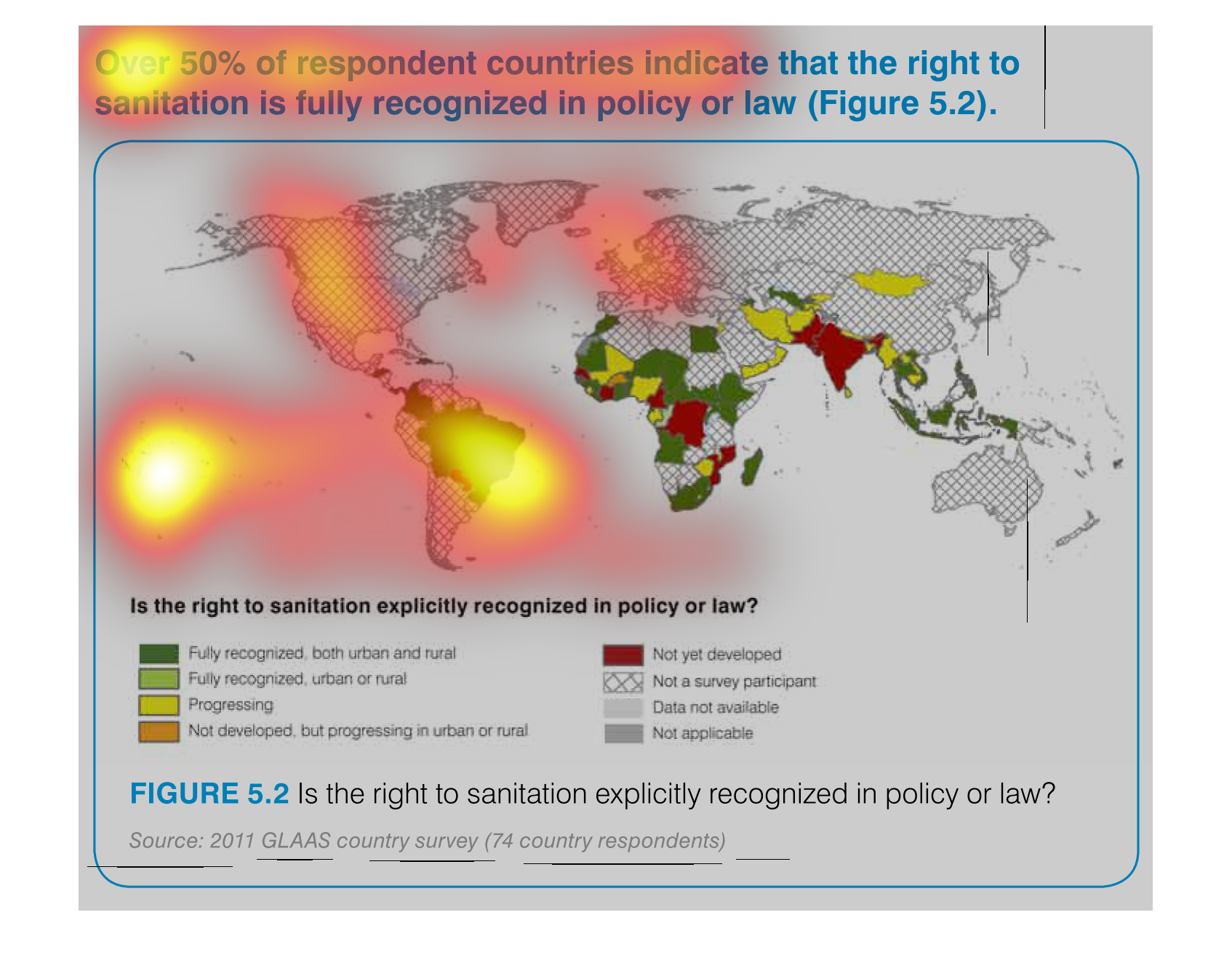
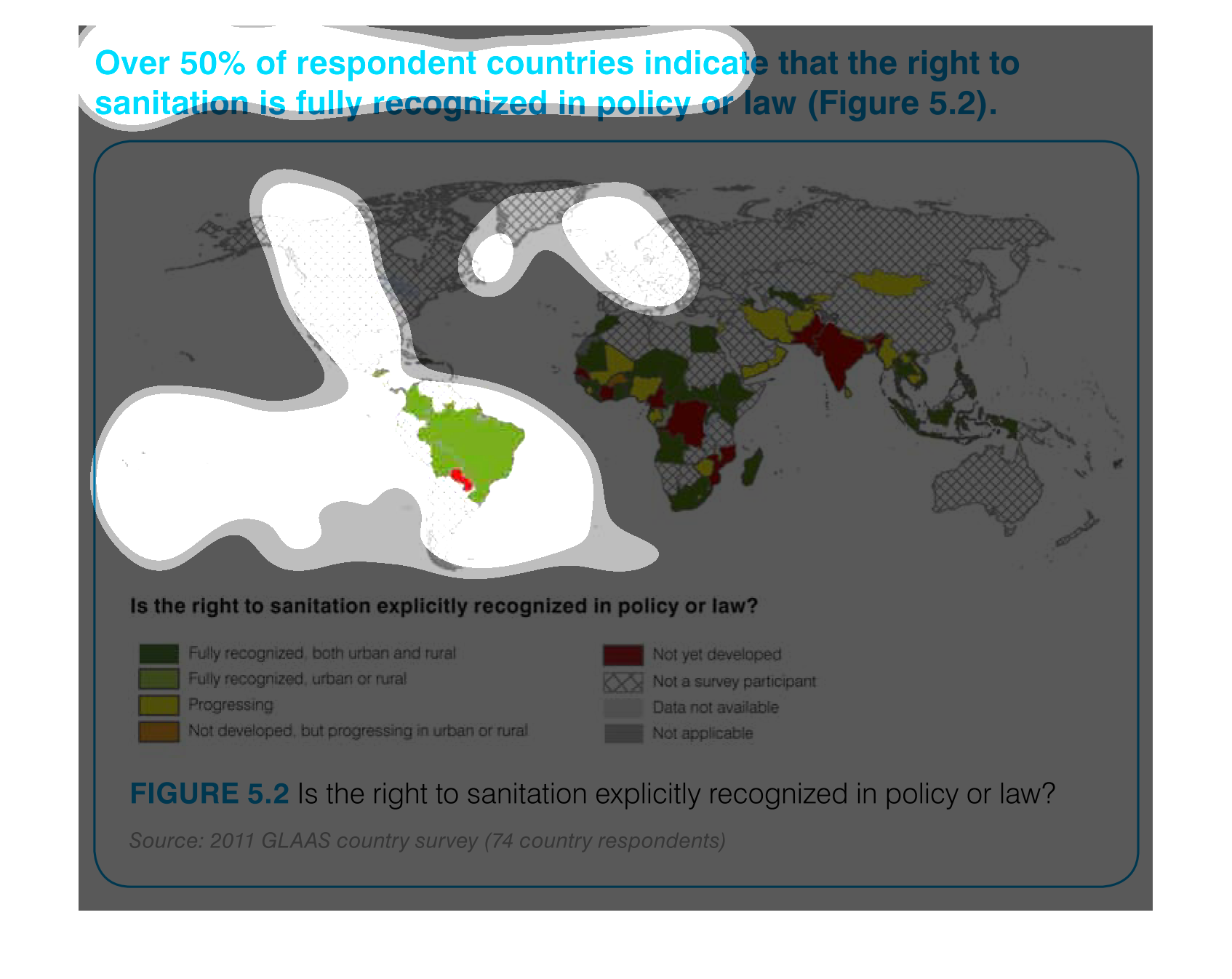
The image depicts a map of the globe indicating which countries explicitly recognize the right
to sanitation in policies or law. Many Developed countries including the United states, Australia,
Mexico, Russia and most European countries. are not survey respondents. Over 50% of the respondents
indicate that the right to sanitation is recognized in law or policy.
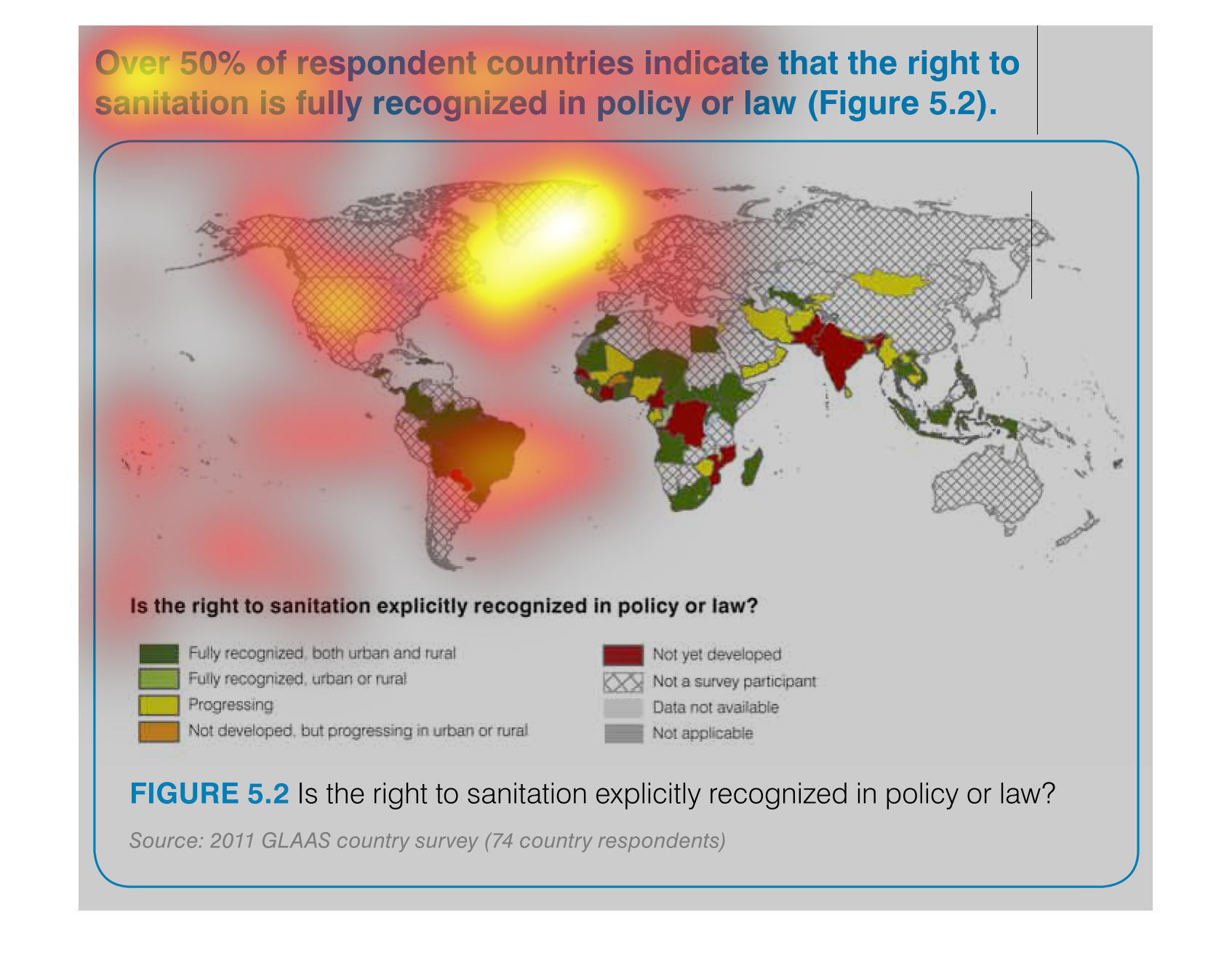
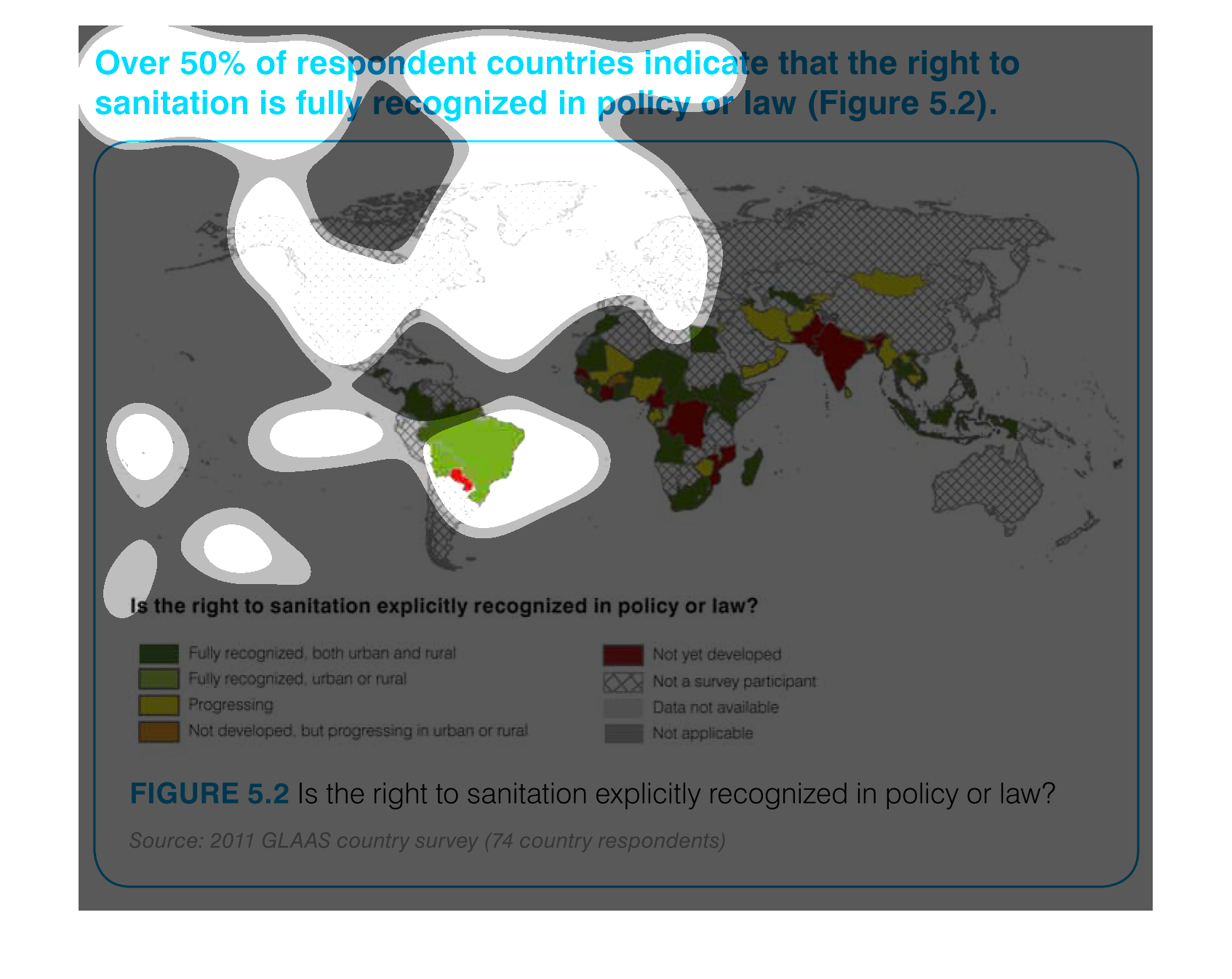
This chart describes over fifty percent of respondent countries indicate that the right to
sanitation is fully recognized in policy or law. Different percentages on the chart are represented
by different colors.
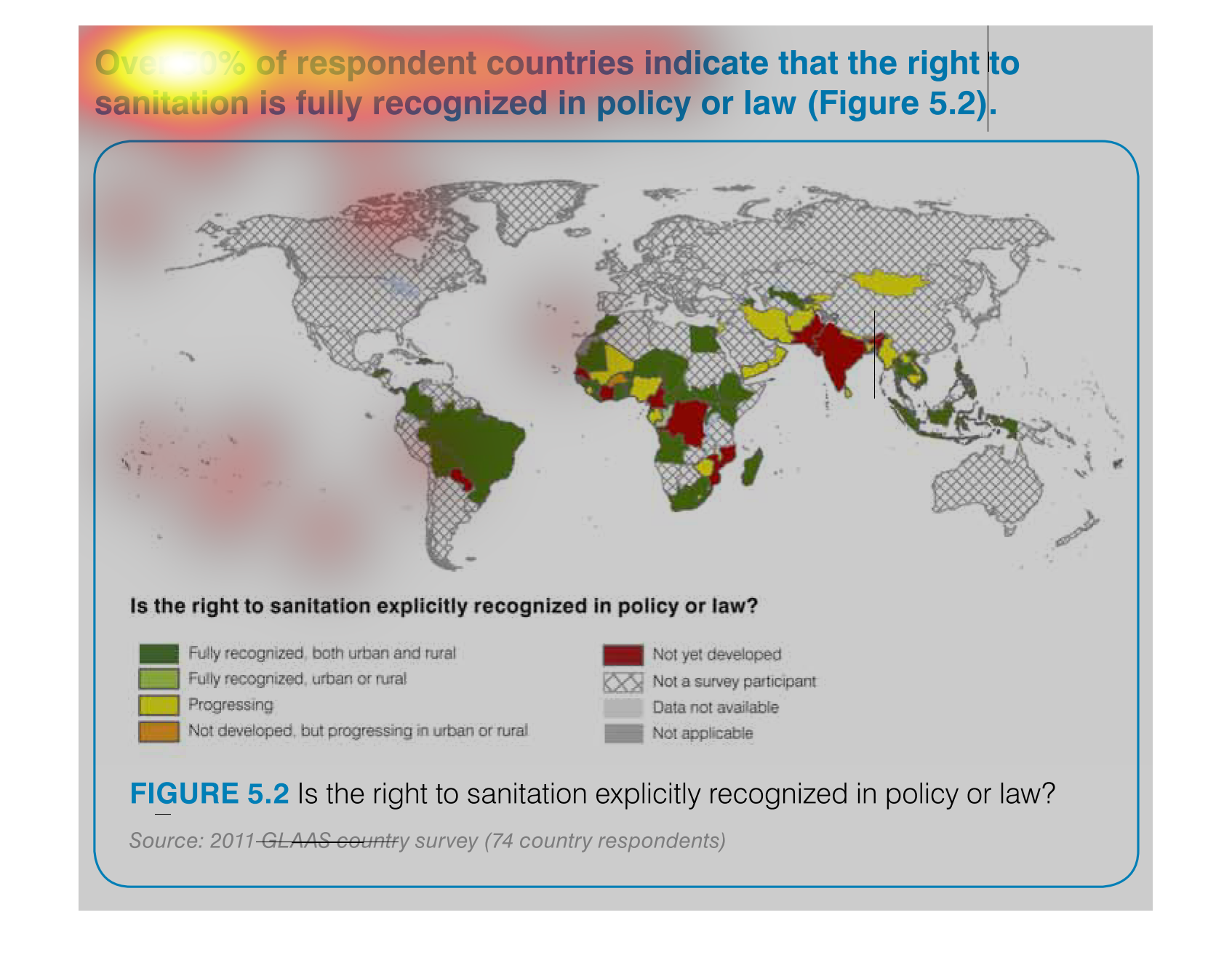
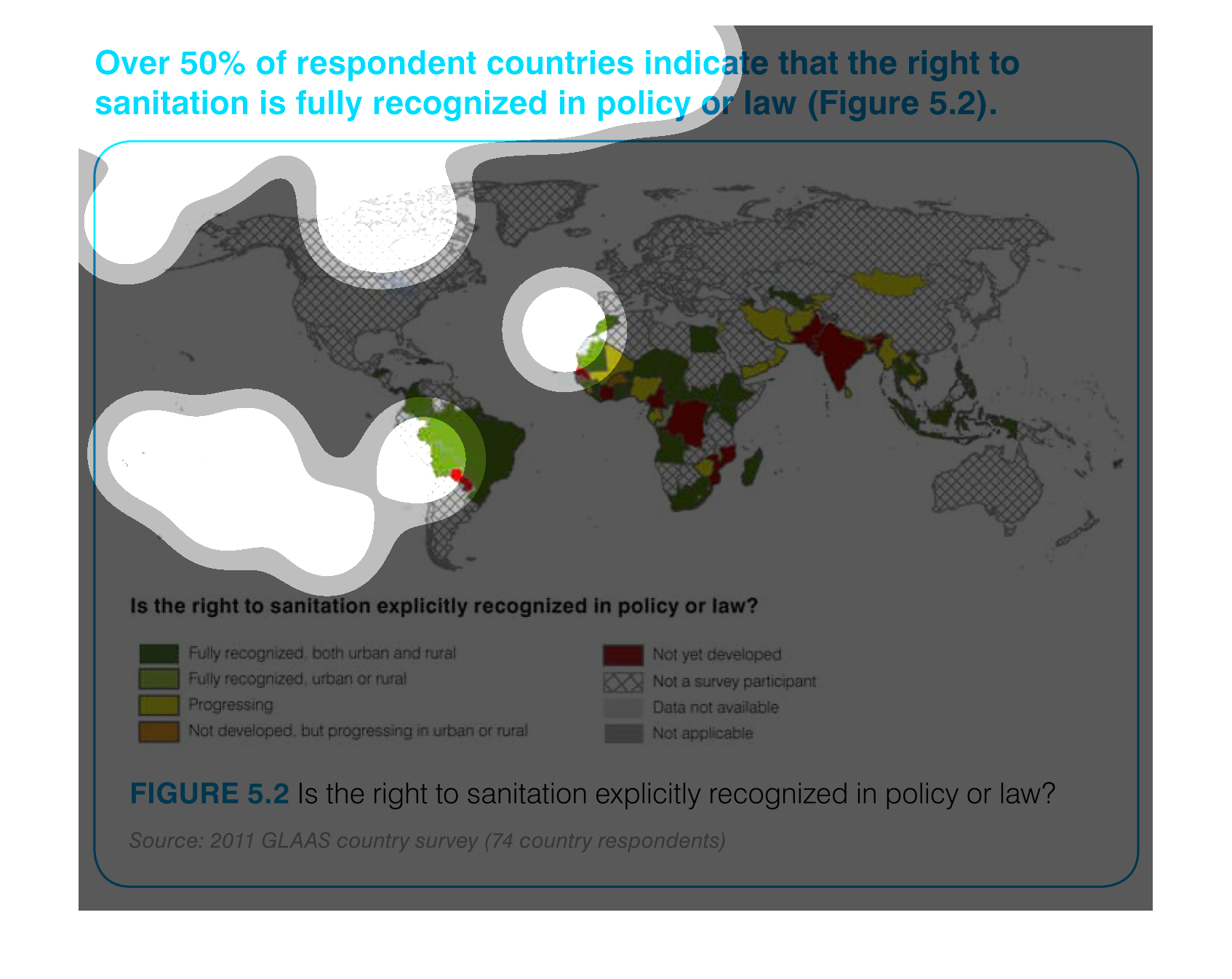
A map or infographic showing the percentage of people from countries who believe basic sanitation
is a right that should be law. shows over 50 percent believe so
